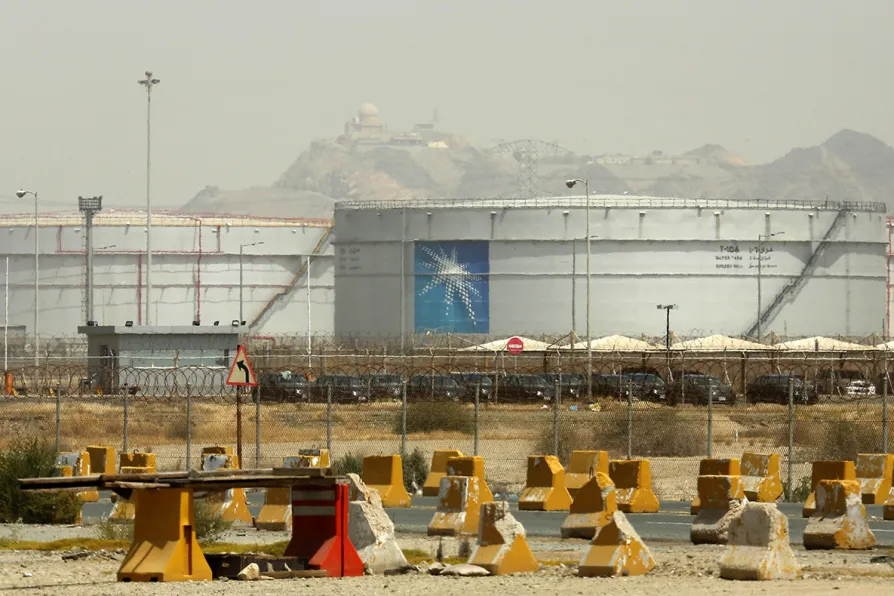
 Storage tanks are seen at the North Jiddah bulk plant, an Aramco oil facility, in Jiddah, Saudi Arabia, on March 21, 2021
Storage tanks are seen at the North Jiddah bulk plant, an Aramco oil facility, in Jiddah, Saudi Arabia, on March 21, 2021
OIL giant Saudi Aramco said on Sunday that it had raked in a staggering record $161 billion (£133.8bn) in profits last year, attributing its earnings to higher crude oil prices.
The firm said in its annual report that the profit represented “its highest annual profits as a listed company.”
Saudi Aramco chief executive Amin H Nasser said in a statement: “Given that we anticipate oil and gas will remain essential for the foreseeable future, the risks of underinvestment in our industry are real, including contributing to higher energy prices.”

Money makers already exploit cleaning and catering contracts while the military-industrial complex diverts billions from health to warfare — but Bevan’s vision will endure as long as people fight for it, writes ROGER MCKENZIE
















